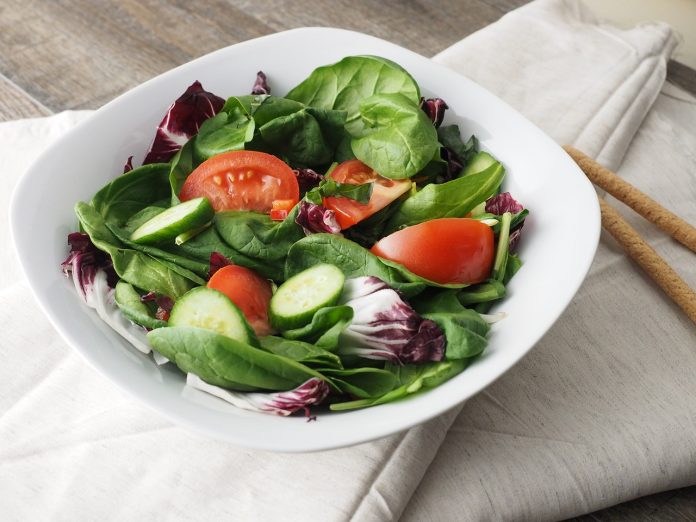
I have a 13-year-old girl who is very active and she is extremely picky. She won’t eat any vegetables at all. She has been having problems with her eyesight for 3 years now and she needs a new, stronger prescription every year. I’ve tried hiding vegetables or forcing her to eat them and she chews one bite for 5 minutes and cries. What can I do as far as supplements at her age?
If this girl won’t eat fresh or cooked vegetables even when added to other foods, have you tried juicing vegetables with some fruit? You can buy bottled vegetable and fruit smoothies in the grocery store as a start before buying a juicing machine. Read food labels of store smoothies to ensure you are buying one with vegetables in it. It doesn’t have to be a green smoothie either. While I am not a big juicing fan as it removes fiber in food, it would be one way to include more vegetables. Sometimes you have to take a different approach to encourage vegetable eating in an older child.
Continue offering and encouraging this teen girl to try veggies. Forcing a teen or child can become a test of wills where the child realizes their power over what they will or will not eat. This behavior can lead to an eating disorder. If she has eliminated other food groups, then I would encourage you to make an appointment to see an eating disorder’s therapist before the picky eating becomes entrenched.
I would downplay any emphasis on foods your teen won’t eat unless she starts avoiding whole groups of foods besides vegetables. Ignoring vegetable aversion behavior by this teen may be difficult for you, but be consistent in encouraging and serving vegetables at meals.
I have found that making a spinach salad mixed with lettuce, creamed spinach, or spinach souffle can make eating plain cooked spinach more acceptable by someone who doesn’t like spinach. Do the same with other veggies by combining them in a recipe that makes them appealing. I strongly feel that food has to look good to taste good so appearance is important.
Cream soups with pureed vegetables are another option. For example, tomato soup has tomatoes. Other cream soups with pureed butternut squash look like tomato soup. Look for cream soup recipes online and make sure to blend the soup smooth with no chunks before serving.
Children form their eating habits from birth thru the age of 10. If they are not exposed to and not encouraged to eat a wide variety of foods, they do not develop a likeness for foods that they have not tasted. Remember it takes 21 times of offering a child a food before they will try it.
Also, the father figure in a family has influence over vegetable eating according to published research. So if the father of this girl doesn’t eat vegetables as a model of what to eat or makes negative faces while eating vegetables, the girl may not eat vegetables either. Encourage the father figure in this family to smile when he eats vegetables. It has a surprising effect dating back to our cave genes where parents taught their children which foods were safe to eat.
This teen is of an age where her friends may start influencing her food choices. While you may not have input over her friends, you could invite her friends to dinner and serve vegetables. Perhaps seeing her friends eat vegetables would be a positive experience?
Regarding her eyesight, I would have a discussion with her eye doctor (ophthalmologist) about the effect not eating vegetables has on her vision. One eye disease, macular degeneration which more often happens in older people is related to not eating foods high in vitamin C, E, vitamin A beta carotene, zinc, and copper. Generally, citrus fruits are good sources of vitamin C and orange vegetables are good sources of beta carotene. Many cold, ready-to-eat kinds of cereal are fortified with 100% of vitamins. Would this teen girl eat cold cereal with milk for breakfast or a snack? Even eating cereal plain as a snack would be a good choice. I would not recommend zinc and copper supplements as these nutrients work in opposition to each other. Lutein and zeaxanthin which are antioxidants are also helpful for vision by protecting eyes from UV sunlight. It may be wise for her to wear sunglasses when outside even on a cloudy day. Talk to her eye doctor about wearing sunglasses. Lutein is high in leafy greens (spinach, turnip greens, chard, collards, kale), peas, zucchini, pistachio nuts, winter squash, edamame (soybeans in a pod), tomatoes.
As far as supplements, a vitamin and mineral supplement with 100% of the RDA for teens (not adults) would be acceptable, but not an alternative to not eating vegetables. Talk to your pharmacist about which multivitamin they would recommend.
While you could discuss the important vitamins and minerals in vegetables in athletic performance, this may not sway this athletic teen girl. Have you talked to her coach about nutrition information s/he provides to athletes and perhaps scheduling a dietitian to talk to the girl athletes about good food choices for athletic performance?



